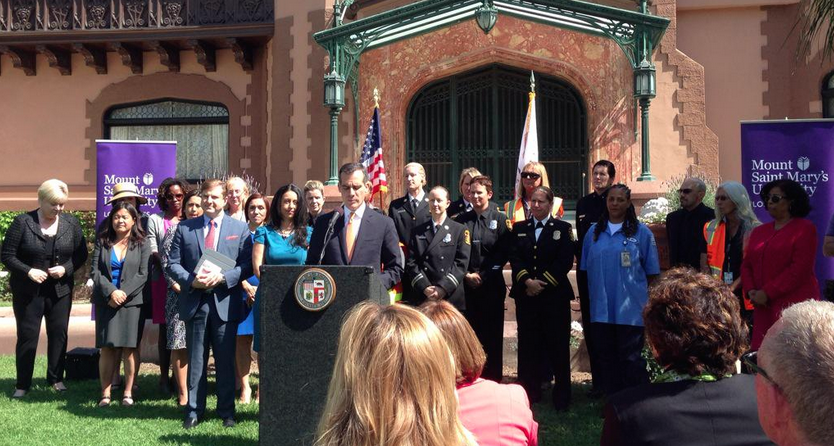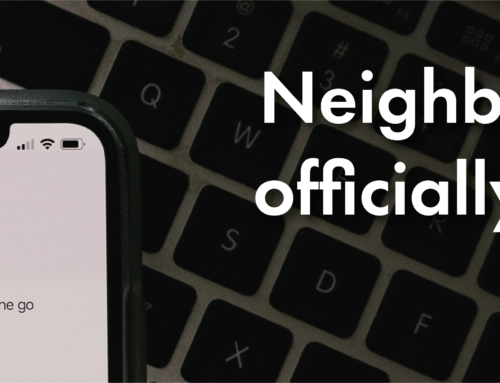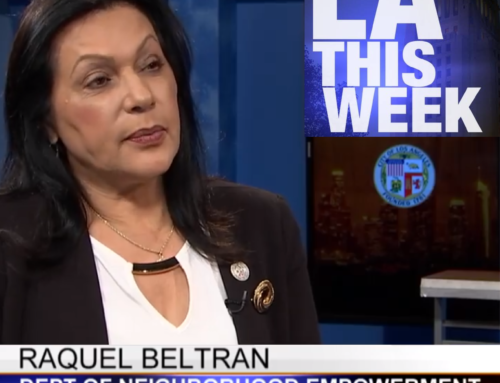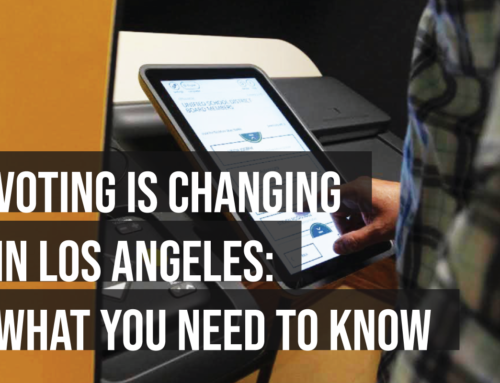For the first time in the history of the city, Mayor Garcetti’s office has commissioned a report on the status of women and girls in Los Angeles, with the research being conducted by Mount St. Mary’s University. The first two parts of the five-part report, viewed as a first step in addressing gender inequality in employment and wages and identifying challenges that prevent women from reaching their full potential, were publicly released on March 19th. A crowd of over a thousand attendees gathered to hear the key findings of the report, which was funded by the City’s Commission on the Status of Women.
As part of the Mayor’s data-driven approach to government, this report provides “important information that will help us develop a plan of attack to address gender inequality and the issues impacting women in our city.” Key findings show that women in Los Angeles are paid on average 84 cents on the dollar compared to men, and earn less across every occupational cluster.
Only about a quarter of City employees are women, and only one of 18 elected officials in the City is female. Tellingly, while female candidates win at the same rate as men when they do run for office, over 80% of candidates in the past three elections were men. When announcing the findings of the report, Mayor Garcetti asserted that it is “time to ensure women are in leadership” and encouraged women to run for office “for the good of the city.”
There are bright spots as well — for the first time, the City has achieved gender parity in its 41 boards and commissions, with 54% of positions being held by women. Since being elected, Mayor Garcetti has appointed 6 women as heads of City departments.
The report mentions Neighborhood Councils as a possible avenue for increasing female participation in municipal government, suggesting leadership programs that can “prepare women to run for larger, citywide offices.”
Coincidentally, one such program that encourages women to participate in Neighborhood Council leadership, Civic U, kicked off this week, with the first of three workshops for Neighborhood Council leaders that will introduce resources and tools for improving the City’s responsiveness and enhancing the connecting between Neighborhood Councils and City Hall.
The full two-part report can be viewed here.






